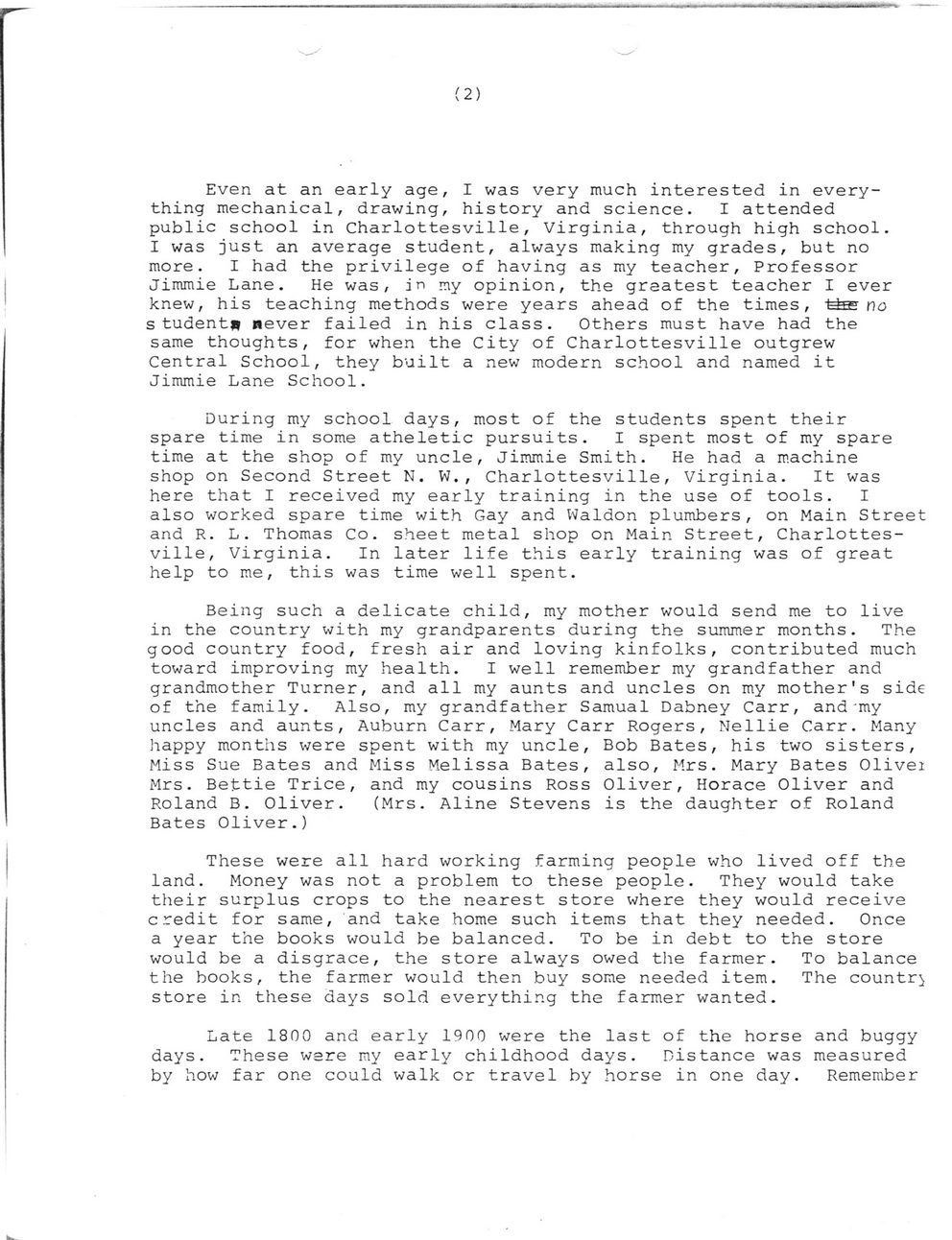This text was obtained via automated optical character recognition.
It has not been edited and may therefore contain several errors.
(2) Even at an early age, I was very much interested in everything mechanical, drawing, history and science. I attended public school in Charlottesville, Virginia, through high school. I was just an average student, always making my grades, but no more. I had the privilege of having as my teacher, Professor Jimmie Lane. He was, in my opinion, the greatest teacher I ever knew, his teaching methods were years ahead of the times, Mgr no students never failed in his class. Others must have had the same thoughts, for when the City of Charlottesville outgrew Central School, they built a new modern school and named it Jimmie Lane School. During my school days, most of the students spent their spare time in some atheletic pursuits. I spent most of my spare time at the shop of my uncle, Jimmie Smith. He had a machine shop on Second Street N. W., Charlottesville, Virginia. It was here that I received my early training in the use of tools. I also worked spare time with Gay and Waldon plumbers, on Main Street and R. L. Thomas Co. sheet metal shop on Main Street, Charlottesville, Virginia. In later life this early training was of great help to me, this was time well spent. Being such a delicate child, my mother would send me to live in the country with my grandparents during the summer months. The good country food, fresh air and loving kinfolks, contributed much toward improving my health. I well remember my grandfather and grandmother Turner, and all my aunts and uncles on my mother's side of the family. Also, my grandfather Samual Dabney Carr, and-my uncles and aunts, Auburn Carr, Mary Carr Rogers, Nellie Carr. Many happy months were spent with my uncle, Bob Bates, his two sisters, Miss Sue Bates and Miss Melissa Bates, also, Mrs. Mary Bates Olivei Mrs. Bettie Trice, and my cousins Ross Oliver, Horace Oliver and Roland B. Oliver. (Mrs. Aline Stevens is the daughter of Roland Bates Oliver.) These were all hard working farming people who lived off the land. Money was not a problem to these people. They would take their surplus crops to the nearest store where they would receive credit for same, and take home such items that they needed. Once a year the books would be balanced. To be in debt to the store would be a disgrace, the store always owed the farmer. To balance the books, the farmer would then buy some needed item. The country store in these days sold everything the farmer wanted. Late 1800 and early 1900 were the last of the horse and buggy days. These were my early childhood days. Distance was measured by how far one could walk or travel by horse in one day. Remember

Carr, Hugh Turner My-First-80-Years-Aboard-The-Planet-Earth-007